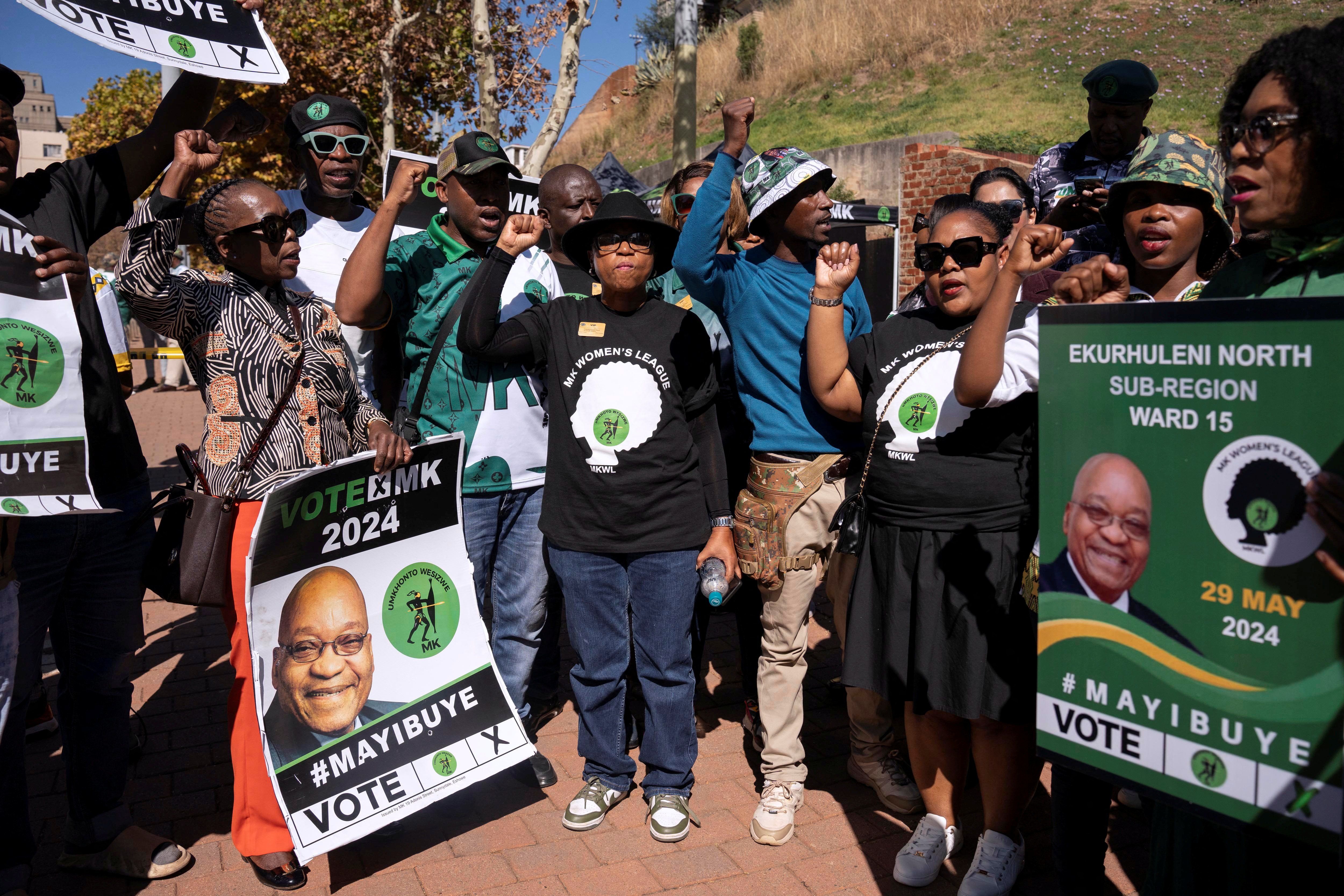Nine days before South Africa’s general election, former President Jacob Zuma was disqualified from running for a parliamentary seat because the constitution prohibits candidates who have served more than 12 months in prison.
Background: Zuma led the ruling African National Congress from 2009 to 2018, before resigning in disgrace amid allegations that his administration was infiltrated by corporate interests. After he was released from his 15-month prison sentence last year, he launched his own uMkhonto WeSizwe party, or MK, which has surprised analysts by polling above 10%. Its gains have mostly been at the expense of the ANC, which is now polling around 46%.
Election impact: Zuma’s party has stood behind its leader, who will still wield influence from the sidelines. Zuma is using the verdict to position himself as a victim of the out-of-touch ANC, a spin that could take votes away from them and boost MK on May 29.
In South Africa, the majority party chooses the president. The ANC is predicted to lose its majority for the first time since apartheid ended 30 years ago. If it gets less than 50% of the vote, it will need to form a coalition – likely with the third-largest party, the Economic Freedom Fighters – to reelect Cyril Ramaphosa for a second and final term.
